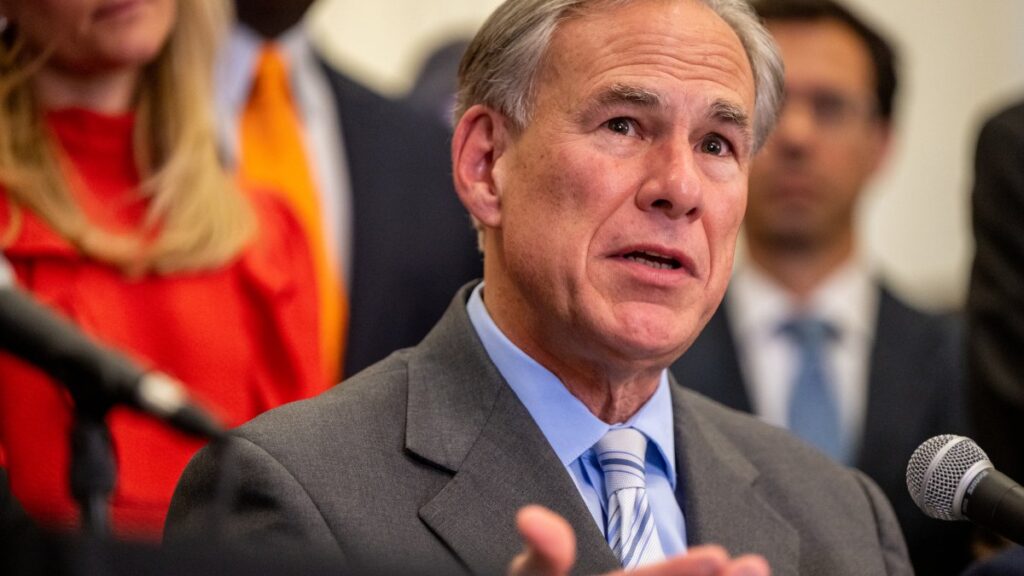In a fierce partisan battle between Texas Republicans, Gov. Greg Abbott has emerged as the biggest winner in the March 5 primary. Last year, a group of 21 members of his party worked with Democrats to block a school choice voucher proposal. A small number of them have been defeated by Mr. Abbott-backed challengers, and several more will face high-stakes runoff elections in May.
Anti-voucher Republican representatives Travis Clardy, Ernest Bales, Hugh Shine, Reggie Smith, Steve Allison and Glenn Rogers lost to challengers who supported the idea. Representatives Gary VanDever, Justin Holland, John Kaempfer and Dwayne Burns will face their challengers in a May 28 runoff election.
“We will support true conservative candidates on the ballot who support the majority of voters in supporting educational freedom for all Texas families and building a brighter future for all Texans.” “We will continue to do so,” Abbott said in part after the election.
Last year, the Texas House rejected the measure by a vote of 84-63. After replacing five retirees with candidates who supported Mr. Abbott's plan, the governor had to remove eight incumbent members who opposed him. He will need two out of four in the runoff to win a majority in the Texas House and protect his numbers from resurgent Democrats in November's general election.
As the results trickled in Tuesday night, the fallout left an impression on NBC 5's election night panel.
Former Democratic Congressional Chief of Staff Jane Hope Hamilton said Republican lawmakers got a message from Gov. Abbott: “If you get out of line, we're going to get you.''
Republican messaging consultant Vinny Minchillo pointed out the difference between Governor Abbott's “revenge tour” on vouchers and Attorney General Ken Paxton's “revenge tour” on impeachment.
“If Governor Abbott is on line 1 and Attorney General Paxton is on line 2, please answer line 1,” Minchillo said.
Minchillo told the panel that there was more than $50 million in political spending in this primary election on television, digital and mail advertising alone.
Many local Republican politicians and voters oppose school choice voucher programs, fearing that the program will gradually reduce funding to public schools over time. That may be about to change, according to political organizers who have worked to change the district's position on the issue.
“I think we can officially dispel the myth that local Republicans and the Republican Party as a whole are not in favor of school choice,” said Genevieve Collins, who works with Americans for Prosperity Texas. said.
Collins was among the governor's allies campaigning against the handful of Republicans who voted to strip the education savings account program from the 2023 education reform overhaul. She said she expected the same deal that was rejected in the last Congress to be reinstated in January 2025.
Last year, the governor announced a plan that would allow parents to use education savings accounts to pay for private school tuition and home school supplies, in addition to giving raises for teachers and adding billions of dollars in official public school funding.
“I think we’re seeing a strong desire to not only fund public schools and increase teacher pay, but also to make sure kids don’t stay in failing schools,” Collins said.
The debate resulted in huge political spending in a highly divisive election. Following the incumbent's defeat and his retirement, depending on the outcome of the runoff elections, Governor Abbott could exceed the 76 votes needed to pass the bill in the Texas House of Representatives.
said Nicole Hill, a spokeswoman for the American Federation of Teachers of Texas. dallas morning news The “exorbitant” amount of money made a difference.
“Voucher money definitely won some of the preliminary races last night,” Hill said.
Mr. Abbott's critics point to the record $6 million in donations he received from Pennsylvania billionaire Jeff Yass, who supports school choice programs.
Mr. Abbott received encouragement from former President Donald Trump, who also supported school choice advocates.
Critics of the show point to the fact that Governor Abbott barely mentioned the education issue surrounding the stump. Instead, he focused on immigration, the biggest issue for Republican primary voters.
One North Texas lawmaker who lost to Mr. Abbott-backed challenger, Rep. Glenn Rogers (R-Grafford), called the governor corrupt in a local paper Wednesday.
“Governor Greg Abbott has tainted the office of governor by telling and repeating blatant lies about me, my colleagues in the House, and those who have stood for our public schools,” Rogers wrote to the Weatherford Democrat. .
Similar proposals have passed the Texas Senate multiple times and are a priority for the Senate president, Lt. Gov. Dan Patrick.


